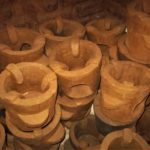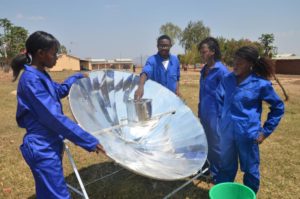While the constant occurrence of blackouts hinders households and businesses to carry out their daily activities, the effects of interrupted energy supply can be much more fatal in the healthcare sector.

Many modern medical technologies depend on electricity. This may include medication that needs to be refrigerated, organs, blood and vaccines that also require refrigeration. Some surgeries have to be stopped or delayed due to the unavailability of electricity. Radiographic examinations cannot take place. Patients on oxygen supply will suffer life-threatening consequences. And yes, blackouts have led to deaths in the recent past.
A completely different area that shows us the health impact of energy poverty is cooking. Most Malawians rely on wood and charcoal as cooking fuels on an everyday basis. Having to lean over an open fire, inhaling the smoke and soot over several hours, on a daily basis has tremendous impacts on one’s health. The consequences can be as fatal as death from in-door-air-pollution related diseases such as lung failure and pneumonia.

Most of the times the smoke leads to a strong indoor pollution of households making whole families vulnerable to lung diseases. According to the World Health Organisation (WHO), indoor air pollution is the leading cause of death in the world and it kills more people than HIV and Aids, malaria and tuberculosis combined. Every eight seconds, someone dies because of inhaling fumes of open fire.

In order to tackle this problem, our partner network, Movement for Bio-energy Advocacy Utilisation Learning and Action (MBAULA) was founded to raise awareness and advocate the adoption and use of energy-efficient cookstoves such as the popular Chiteteza Mbaula cookstove. These cookstoves consume about 40% less fuelwood than conventional three-stone fires that are still widely spread in Malawi. This also translates to a great reduction of emitted smokes, hence can improve the health situation of whole families whilst saving the already depleted forest cover.
Apart from that, there are also other alternatives to wood as a cooking fuel such as briquettes made from wastes. Briquettes, when manufactured correctly and used with a suitable briquette stove emit less to no smoke at all making them a healthier option whilst saving our forests since only wastes are used to make them. Other cleaner cooking options to consider include Gas cookers and solar cookers amongst others.
Read more about Energy Poverty and Education